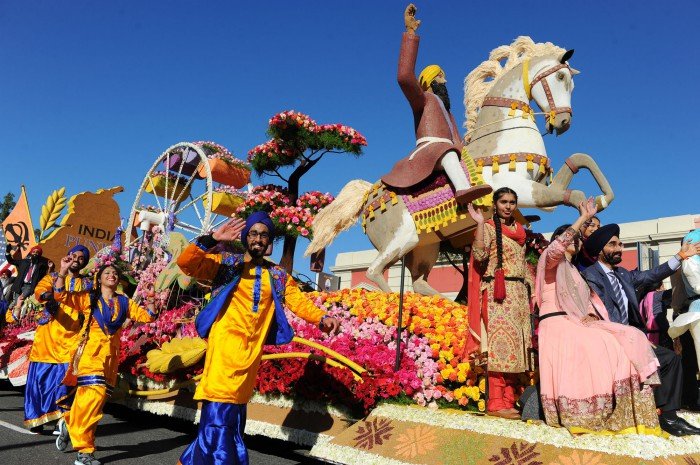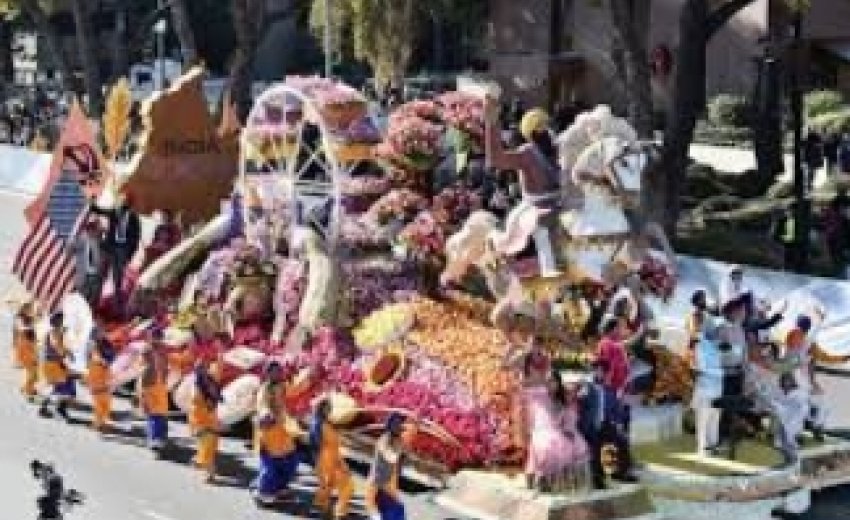 |
| The United Sikh Mission float “A Sikh-American Journey” moves down Colorado Boulevard in the 127th Rose Parade in Pasadena, Calif., Friday, Jan. 1, 2016. darkroom.baltimoresun.com |
Wednesday, January 6, 2016: As the Sikh float in the 127th Tournament of Roses Parade — representing the community’s rich heritage for a second year — glided down the avenues of Pasadena, Calif., Jan. 1, Sikh Americans hoped that this platform would provide an opportunity to introduce Sikh culture and fight stereotypes attached to Sikhs all across the United States.
“In order to do that, we need to be part of the community, and the Rose Parade is a perfect opportunity for us to celebrate with fellow Americans,” said Bhajneet Singh, a spokesman and member of United Sikh Mission, in Fontana, according to a report in The Sun. “It’s an honor and a privilege to be part of the legacy of the Rose Parade, which is as American as it gets.”
The float, which showcased the harvest festival celebrated in Punjab called “Vaisakhi,” was conceived to fit into this year’s Rose Parade theme of “Find Your Adventure.”
It featured a Sikh man with full beard and a majestic turban riding on a horse to participate in competitive sports and festivities. The center of the float showed cultural games, an ethnic bazaar, beautiful embroideries, rich foods, and the state bird, the peacock. The back of the float displayed a map of Punjab, India. Several Sikh American families rode on the float.
The float was sponsored by the Sikh advocacy group, United Sikh Mission, in collaboration with Khalsa Care Foundation and SikhLens.
“There have been a lot of hate crimes, not only against Sikhs, but also against Muslims. This particular step is not just about creating an awareness about the Sikh religion and telling our history and where we come from, but also educating people that just because we look different, doesn’t mean we are dangerous,” the report quoted a San Diego-based Sikh float volunteer Harbani Kaur as saying.
“It’s basically accepting people with different identities, different backgrounds, and different cultures as one. At the end of the day, we’re all human. We all belong to the same human race. Basically we’re all equal.”
Sikhism is the world’s fifth-largest religion and there are about 700,000 Sikhs in the United States, according to the Sikh American Legal Defense and Education Fund.
